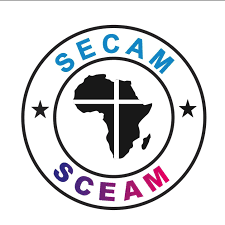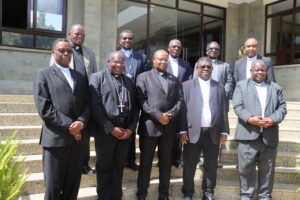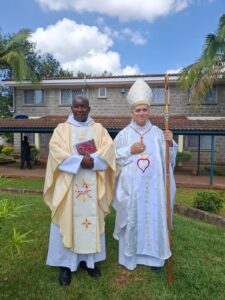SECAM: Decries Instability in the Continent, Urges Countries to Intensify Collaboration

Sr. Jecinter Antoinette Okoth, FSSA
Following political crises in various countries in western Africa leading to instability not only to the affected citizens but the entire continent, members of the Symposium of Episcopal Conferences of Africa and Madagascar (SECAM) have raised concern on how the crises are “leading to political instability and fostering a climate of uncertainty regarding the future of the continent.”
The concern for the bishops in Africa comes due to recent coups in the Sahel and Central Africa which is affecting the Association of Episcopal Conferences of Central Africa Region (ACERAC) and the Regional Episcopal conferences of West Africa (RECOWA/CERAO) which are within the jurisdiction of SECAM.
In the statement shared with AMECEA online Saturday, September 9, the bishops said they “cannot remain indifferent to what is happening on the continent, and above all to the problems posed by violence, the impoverishment of the population and the misery that is rampant ever where, social injustice, the exploitation of natural and mining resources by multinationals.”
According to the bishops in their message signed by the President of SECAM His Eminence Fridolin Besungu Cardinal Ambongo the Archbishop of Kinshasa in the Democratic Republic of the Congo, the Catholic Church had already denounced these evils unfortunately, “the Church has assumed its prophetic role in promoting justice, peace and fraternity in a democratic society that respects ethical values and, in particular, human dignity.”
The bishops in Africa referenced St. John Paul’s message delivered in the 90’s regarding democracy which they say is still in its infancy, that “The Church values the democratic system inasmuch as it ensures the participation of citizens in making political choices, guarantees to the governed the possibility both of electing and holding accountable those who govern them, and of replacing them through peaceful means when appropriate.”
They emphasise that even if the Church recognizes democracy and values it, “any power conquered by force is unethical,” a situation the Church cannot promote.
In Pope Francis’ Encyclical Fratelli Tutti Cardinal Ambongo noted on behalf of the prelates in Africa, the continent need to be cautious about populism which may “reactivate the old reflex of adopting an ideological alignment as in the days of the Cold War, and the consequence of such a reversal could be fatal for Africa, given the attraction of its mineral wealth to the great powers.”
“We will not be surprised if the African populations remain in the poor relations of development,” reads part of the statement as it continues, “It is crucial for African countries to collaborate with one another to ensure stability across the continent.”
They called upon the African Union (AU) to encourage the exchange of ideas and resources among its member states to prevent getting trapped and becoming prisoners of rigid ideological alignments. “After all, Africa possesses the necessary means and talented individuals to achieve its development goals.”
Concerning the crises in the continent, the bishops recommend all stakeholders in the affected countries within Africa, “to come together, engage in constructive dialogue, and explore peaceful avenues to resolve the conflict.” Besides, the warring parties need to consider the option of” mediation and embrace the spirit of reconciliation, fostering understanding and healing among their people.”
Concerning political and military leadership, the Church leaders call for respect and protection of human rights throughout the conflict resolution process, as they urge the AU “to provide mediation and resources to facilitate the peaceful resolution of the conflict in all the affected countries in the continent.”
The international community has also been asked to “respect the common good of the citizenry where military coups have taken place and avoid imposing their will for selfish gains as Christians on the continent and the surrounding islands to intensify prayer to God for an end to the conflict and for the return of peace and normalcy in the regions.
The bishops noted that military coups have marked African history for so many years since the 1960s though these coups differ from one country to the other.


